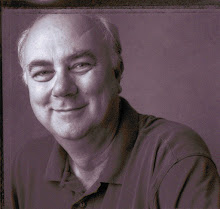Steve Dalkowski, Fastest Pitcher Ever, Model for Nuke LaLoosh in "Bull Durham," Dies
Threw Hard, Lived Hard - Played Minor League Baseball in Kingsport and Later in Minors Pitched Against Kingsport's Charlie Leonard
Dalkowski pitching, or at least posing for a picture, in J. Fred Johnson Stadium in Kingsport in 1957. He played that season for the Kingsport Orioles.
The headline
in the Washington Post this morning jumped out at me: Steve Dalkowski had died.
I
thought he had died years ago.
Steve
Dalkowski is almost universally considered to have been the fastest pitcher who
ever played baseball. He was the real life counterpart of Nuke LaLoosh in the
movie “Bull Durham.”
Dalkowski’s
minor league catcher Cal Ripken, Sr., who saw them all from Bob Feller to Nolan
Ryan, said Dalkowski’s fastball was faster than any of them by far.
The
official major league record belongs to Aroldis Chapman, who was timed at 105.1
in a 2010 game against the San Diego Padres.
Ripken
said Dalkowski’s fastball was probably in the 110-115 range.
He
would easily hold the record but for two things: there were no radar guns on
the baseball diamond when he played (1957-`1965) and he never threw a single
pitch in the big leagues. He could throw hard but he couldn’t control where the
pitch was going. Just when he finally learned control, he blew out his arm in
spring training 1963 on the verge of making the Baltimore
Orioles team.
Dalkowski
pitched hard but he also lived hard. And drank hard. Five years after his baseball
career ended he was a migrant farm worker in California. There are many stories
about him showing up at a minor league field where an old teammate was
managing, begging change for his next bottle of cheap wine. That’s why I thought
he was already dead.
There
is a Kingsport connection, a big one. Dalkowski spent the 1957 season pitching
for the Kingsport Orioles team in the Appalachian League. And he later played
against Kingsport native Charlie Leonard in the Northern League.
I spent
many mornings in a booth at the Jan-Mar, eating breakfast with Charlie and
listening to him tell Dalkowski stories.
I
could swap a few back, not from personal experience, but because I included a
chapter about Dalkowski in my book “Why Is the Foul Pole Fair?”
But I
was in awe listening to Charlie because he actually batted against Dalkowski. Charlie
said he had no trouble with Dalkowski’s fastball. “Nobody could hit it but he
couldn’t control it either.”
Charlie
told me he batted against Dalkowski ten times when Charlie was with Grand Forks
in the Northern League and Dalkowski was pitching for Aberdeen. “I walked nine
times.”
Charlie
says one of his teammates boasted that he could hit Dalkowski. “The first pitch
it looked like a cartoon. The guy ducked so fast that his hat was still in the
air and the ball went between his head and the hat!”
Kingsport Orioles in 1957 - Dalkowski is on first row, fourth from right.
Steven
Louis Dalkowski Jr. spent the 1957 season in Kingsport, playing for the
Orioles’ Appalachian League affiliate.
Among
the things he is supposed to have done while pitching here:
While
warming up, his pitches were so far astray of the plate one night that he
plunked a fan who was standing in line for a hot dog.
He
frequently threw a fastball so hard and so high that it tore through the screen
behind home plate at J. Fred Johnson Stadium.
He
once threw a pitch so hard, and so off target, that it tore the ear lobe off an
opposing player. See clipping:
He
once lost a no hitter because he walked 18 batters and threw six wild pitches. Another time he walked 21.
His
one season in Kingsport he struck out 121 and walked 129 in 62 innings. He
finished the year with a dreadful 1-8 record and an equally dreadful 8.13 ERA
and probably would have been demoted the next season except that Class D rookie
ball was as low as you could go.
There
were no radar guns in the fifties so we will never know exactly how fast Dalkowski
threw. In 1959 when he was pitching for Aberdeen, South Dakota of the Northern
League his manager Earl Weaver took him to the local Aberdeen Army Proving
Grounds where military radar clocked his fastball at 98 mph. Of course he had
pitched the previous night, throwing 150 pitches. He was throwing off flat
ground, not a mound. And he had to throw for an hour before he finally got a
pitch in the radar’s range. So throwing with a fatigued arm on flat ground he
managed to hit almost 99 mph. On a real radar gun under ideal conditions he most
assuredly could have hit 110 or 115.
Dalkowski
injured his arm in spring training 1963 in one of those ironies of fate. He
wasn’t pitching but fielding a Jim Bouton bunt and throwing to first when he
heard a pop in his elbow. He missed that season. He returned in 1964 but his
fastball didn’t and by 1966 he was out of baseball.
One
more Dalkowski story from Charlie Leonard. During spring training in Bradenton,
Florida with the Pirates, Charlie ventured into a local tavern one night.
“Dalkowski was sitting at the bar so I went over and sat next to him. He was
crying. He said, ‘I’ve got all this ability and I can’t do anything with it.’”
Dalkowski
was 80 and had been in assisted living for 20 years since a stroke.









